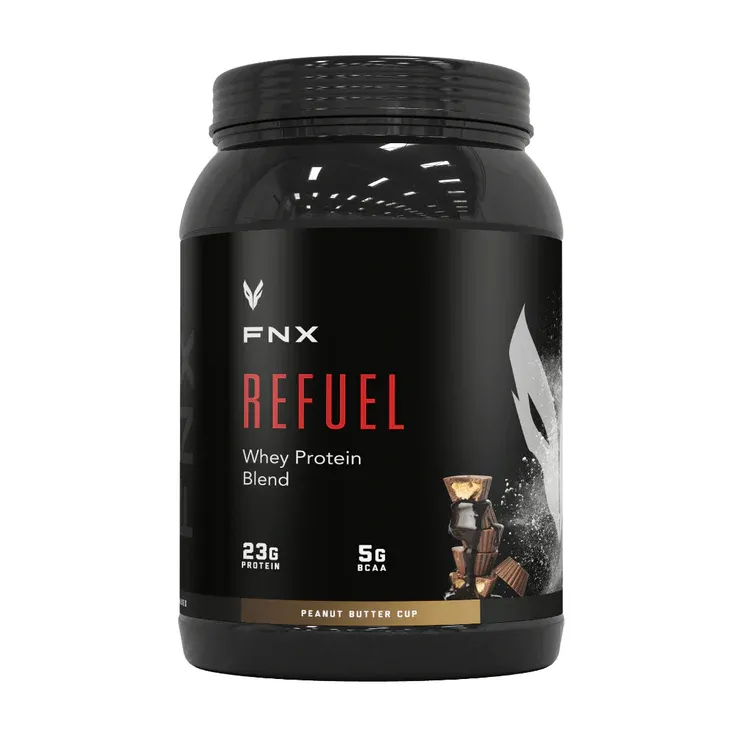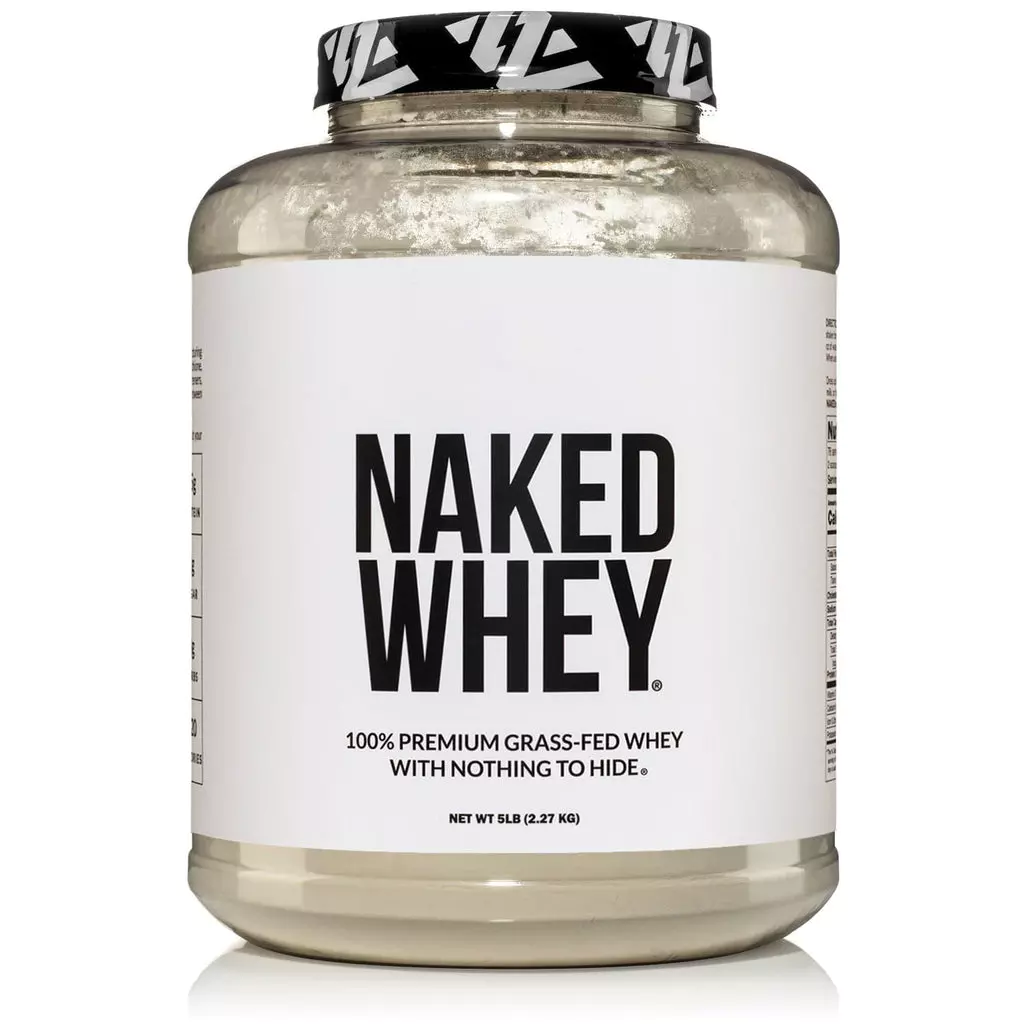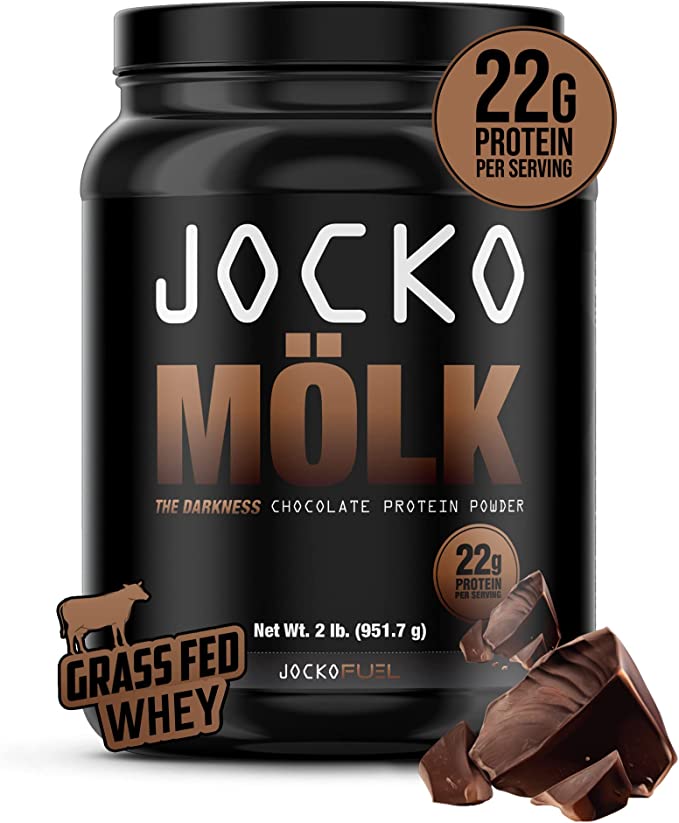Top 5 Science-Backed Reasons Athletes Benefit From Whey Protein Shakes
Discover the top 5 reasons why athletes should consume whey protein shakes, backed by scientific research. Get ready to level up your performance and recovery!

If you're an athlete looking to elevate your game, then it's time to shake up your nutrition routine with whey protein shakes. As an expert in sports nutrition, strength, and conditioning, I have compiled a list of the top 5 reasons why incorporating whey protein into your diet is an absolute game-changer. Get ready to fuel your body, enhance your performance, and recover like never before – all backed by scientific evidence!
- Boost Muscle Growth and Performance
Research consistently shows that whey protein plays a significant role in promoting muscle growth and improving athletic performance (1). With its high-quality protein content and an abundance of essential amino acids, including leucine – the key player in muscle protein synthesis – whey protein shakes can help you build lean muscle mass and increase strength (2).
- Accelerate Recovery and Reduce Muscle Soreness
Whey protein shakes are the ultimate post-workout beverage for athletes. Studies have demonstrated that consuming whey protein after training can speed up recovery, reduce muscle soreness, and minimize exercise-induced muscle damage (3). By feeding your muscles with essential amino acids, whey protein can help repair muscle fibers and promote muscle protein synthesis, facilitating faster recovery times.
- Enhance Immune Function
Athletes often put their immune systems under stress due to intense training and competitions. A compromised immune system increases the risk of illness, which can sideline your progress. Fortunately, whey protein contains immunoglobulins and other bioactive compounds that help bolster the immune system (4). By incorporating whey protein shakes into your diet, you can strengthen your immune defenses and stay in peak condition.
- Maintain a Healthy Body Composition
Whey protein shakes are not only beneficial for muscle growth and recovery but also play a crucial role in maintaining a healthy body composition. As a high-quality protein source, whey protein can help increase satiety, control appetite, and reduce body fat levels (5). By incorporating whey protein into your nutrition plan, you can manage your weight more effectively and optimize your overall performance.
- Support Bone Health
Strength and agility are critical for athletes, and bone health plays a vital role in maintaining these attributes. Whey protein has been shown to improve bone density and reduce the risk of bone-related injuries, thanks to its calcium and phosphorus content (6). By incorporating whey protein shakes into your nutrition strategy, you can fortify your bones, making them stronger and more resilient to injury.
As an athlete, your nutrition choices are crucial to your success, and whey protein shakes should be a top priority. From muscle growth and performance enhancement to accelerated recovery and immune support, the benefits of whey protein are backed by scientific research. Embrace the power of whey protein and level up your game today! Cheers to a healthier, stronger, and more resilient you.
My Top 3 Picks For Whey Protein

Refuel - Whey Protein Blend
Protein for optimal performance & recovery.
Whey -Fast acting protein that absorbs quickly to rebuild muscle tissues after workouts
CASEIN -A protein that slowly digests so muscles can rebuild at night & satiate you through the day

Grass Fed Whey Protein Powder
Naked Whey is sourced from small Northern California and Idaho dairy farms. Our cows are grass-fed, free roaming, and raised without growth hormones like rBGH or rBST. Each serving includes 25 grams of protein and 5.9 grams of branched-chain amino acids (BCAAs).
Naked Whey is completely free of additives and artificial sweeteners. We are committed to shortening the steps between our farms and you. Don’t let the supplement industry fool you; additives are for their bottom line, not your health.

Jocko Mölk Whey Protein Powder (Chocolate)
- JOCKO MÖLK: Designed and engineered with a time-release blend of whey concentrate, whey isolate, micellar casein, and egg. This whey isolate protein powder slowly digests in your system and fuels muscle growth and muscle recovery all day long.
- AMINO ACIDS: Blended with a plethora of amino acids, the building blocks of protein, these necessary components help your body with building muscle and regulating immune function. Check out the amino acid profile on the bottle!
- DIGESTIVE ENZYMES & PROBIOTICS: With added digestive enzymes and probiotics to fuel growth and muscle recovery all day long, Mölk’s complex mix of digestive enzymes and probiotics keeps your gut in check and ensures everything moves smoothly.
- GRASS-FED PROTEIN, NO HORMONES OR SOY: We’ve developed the best protein powder from four different types of protein: whey concentrate, isolate, casein, and egg. Our whey protein powder comes from happy, grass-fed cows and is soy- and hormone-free.
- SUGAR FREE CHOCOLATE FLAVOR: Get your protein shake without the unwanted sugar. Mölk is sweetened with monk fruit only. It has no added sugar, no artificial sweeteners, and no added flavors.
Citations:
(1) Hulmi, J. J., Lockwood, C. M., & Stout, J. R. (2010). Effect of protein/essential amino acids and resistance training on skeletal muscle hypertrophy: A case for whey protein. Nutrition & Metabolism, 7(1), 51.
(2) Devries, M. C., & Phillips, S. M. (2015). Supplemental protein in support of muscle mass and health: advantage whey. Journal of Food Science, 80(S1), A8-A15.
(3) Pasiakos, S. M., McLellan, T. M., & Lieberman, H. R. (2015). The effects of protein supplements on muscle mass, strength, and aerobic and anaerobic power in healthy adults: a systematic review. Sports Medicine, 45(1), 111-131.
(4) Gleeson, M. (2007). Immune function in sport and exercise. Journal of Applied Physiology, 103(2), 693-699.
(5) Paddon-Jones, D., Westman, E., Mattes, R. D., Wolfe, R. R., Astrup, A., & Westerterp-Plantenga, M. (2008). Protein, weight management, and satiety. The American Journal of Clinical Nutrition, 87(5), 1558S-1561S.

